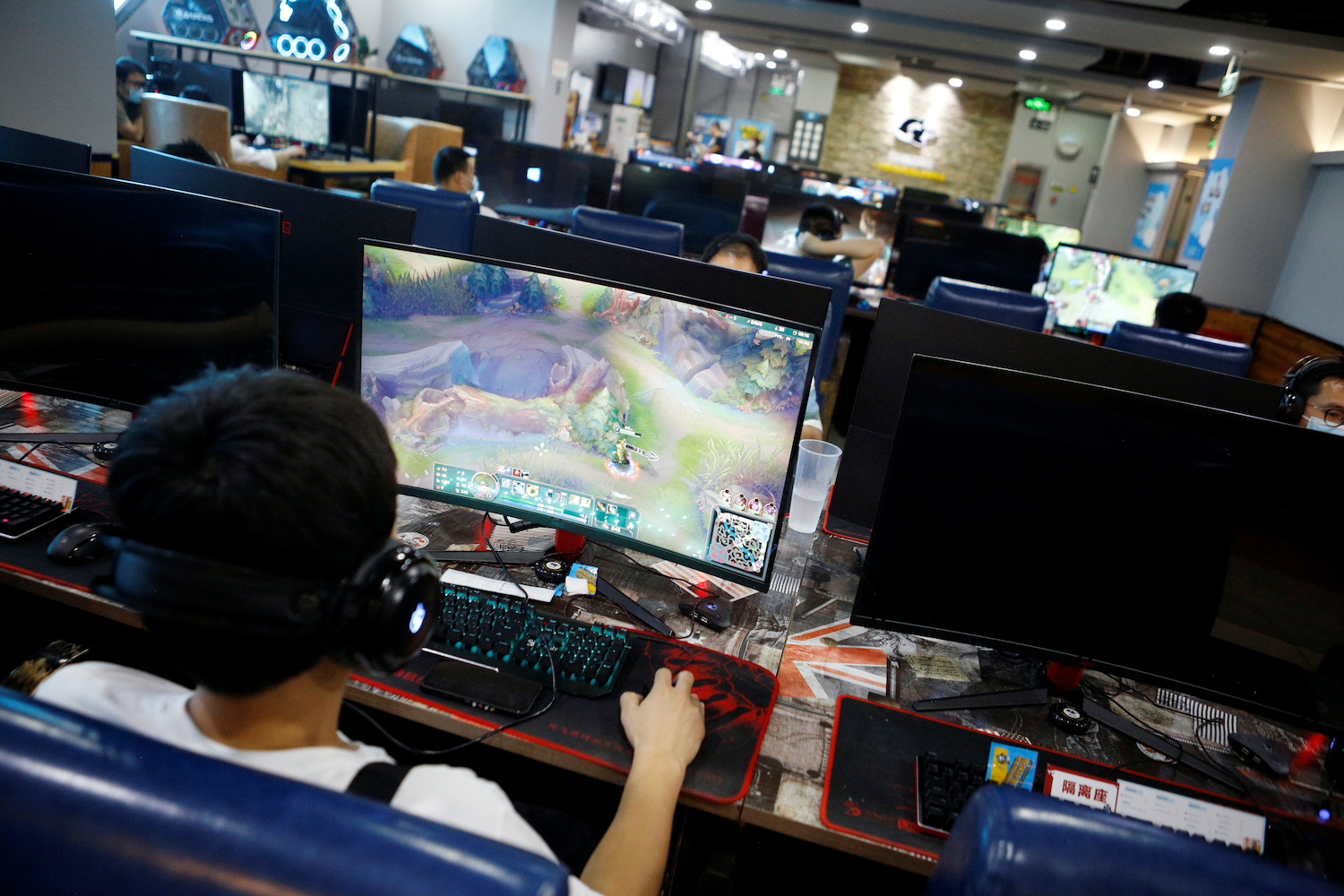China announced new rules on Monday that forbid under-18s from playing video games for more than three hours a week – a move which knocked down shares in Tencent and other gaming companies in morning trading on Tuesday.
The news comes amidst a months-long regulatory crackdown on internet platforms covering a whole range of sectors.
On Tuesday, the country’s market regulator proposed amendments to the country’s e-commerce law, saying that licences can be revoked if the platforms fail to take necessary measures against vendors who infringe intellectual property rights.
The former version of the law says the platforms would be fined between 50,000 yuan and 2 million yuan for such offences. That change is open for public review before October 14, the State Administration of Market Regulation said on its website.
The latest restriction on gaming upset teenagers, who took to social media to express their outrage, but Beijing said the new rules were necessary to stop growing addiction to what it once described as “spiritual opium”.
The People’s Daily, the official newspaper of the ruling Communist Party, said in an article on Monday after the rules were announced that the government had to be “ruthless”.
The article said it was “indisputable” that indulging in online games affects normal study life and the physical and mental health of teens, adding that “destroying a teenager will destroy a family.”
“This group of grandfathers and uncles who make these rules and regulations, have you ever played games? Do you understand that the best age for e-sports players is in their teens?” one comment on China‘s Twitter-like Weibo, said.
“Sexual consent at 14, at 16 you can go out to work but you have to be 18 to play games. This is really a joke.”
Severe long-term implications
The hit to gaming stocks was relatively measured with analysts saying children in general did not provide much revenue for gaming companies, although they noted that the implications for the long-term growth of the industry were much more severe.
“The root of the problem here is not the immediate revenue impact,” said Mio Kato, an analyst who publishes on SmartKarma. “The problem is that this move destroys the entire habit-forming nature of playing games at an early age.”
Tencent shares have lost almost 5% since the state media article that described gaming as ‘spiritual opium’ was published four weeks ago (on August 3).
Jefferies analysts said on Monday they expect to see about a 3% impact to Tencent’s earnings from the new rules, assuming gaming contributes about 60% of its total revenue. The company’s shares dropped by about 2% in early trading in Hong Kong, but ended 3.3% up at the close.
US-listed NetEase fell 3.4% in overnight trade with its Hong Kong shares down by just over 2% on Tuesday.
Krafton Inc, the South Korean company which earns fees by providing services for a similar game to its blockbuster “Player Unknown’s Battlegrounds”(PUBG) to Tencent in China, dropped 1.11%.
Tokyo-listed Nexon and Koei Tecmo, which both have exposure to the Chinese market, were down 3.2% and 3.7% respectively.
One reason why some gaming stocks, such as Tencent, plunged early but recovered may be the fact that the new rules place the onus on implementation on the gaming industry and are not laws that will punish individuals for infractions.
Why the Concern About Gaming?
Authorities in China – the world’s largest video games market – have worried for years about addiction to gaming and the internet among young people, setting up clinics which combine therapy and military drills for those with so-called “gaming disorders”.
Rising rates of near-sightedness were also cited as a concern in 2018.
The National Press and Publication Administration (NPPA), the regulator which approves video game titles, said on Monday the new rules were a response to growing concern that games affected the physical and mental health of children.
About 62.5% of Chinese minors often play games online, and 13.2% of underage mobile game users play mobile games for more than two hours a day on weekdays, according to state media.
Chinese regulators have also targeted the private tutoring industry and what they see as celebrity worship in recent weeks, citing the need to ensure the well-being of children.
The new restrictions forbid children under 18 to play online games from Monday through Thursday and take effect from Sept 1 (Wednesday). They can only play for one hour, between 8 and 9pm on Fridays, Saturdays, Sundays and public holidays.
Online gaming companies must ensure they have put real name verification systems in place, and all titles will eventually need to be connected to an anti-addiction system being set up by the NPPA.
The NPPA told state news agency Xinhua it would increase the frequency and intensity of inspections of online gaming companies to ensure time limits were put in place.
The regulator will also step up measures to punish gaming firms that violate the rules and has increased penalties given after inspections, noting that more than 10,000 gaming titles were reviewed last year. But it said minors could still use their parents’ accounts to bypass the restrictions and said parents and schools also need to step up supervision.
• Reuters and Jim Pollard
ALSO SEE:
China Cuts Amount of Time Minors Can Spend on Online Games
China Should End Tax Breaks for Gaming Sector, Securities Times Says
Tencent Curbs Video Games After State Media Calls Them ‘Spiritual Opium’
























